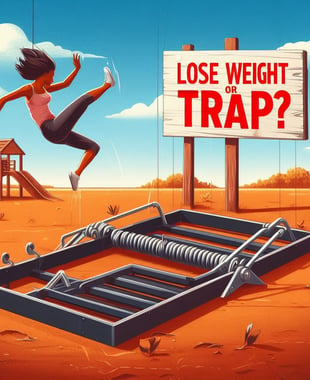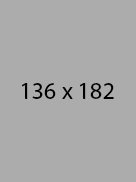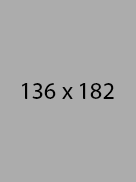Lose Weight or Trap?
@health
1 year ago
Lose Weight or Trap?
Many people want to lose weight, but they often fall into the trap of following unhealthy diets that restrict their protein intake. Protein is an essential nutrient that plays a vital role in many bodily functions, such as building and repairing muscles, bones, skin, hair, and nails, as well as producing hormones, enzymes, and antibodies. Without enough protein, your body will start to malfunction and suffer from various health problems.
In this blog post, I will explain why it is so important to understand that lack of protein will make your body dysfunction, and how you can avoid this trap by eating a balanced diet that includes enough protein. I will also share some tips on how to lose weight naturally and safely, without compromising your health.
What Happens If You Don’t Eat Enough Protein?
Protein deficiency is a condition that occurs when your body does not get enough protein from your diet. This can lead to a number of symptoms, such as:
- Muscle loss and weakness: Protein is the main component of your muscles, and without it, your muscles will start to break down and shrink. This can affect your strength, endurance, and mobility, as well as increase your risk of injury and infection.
- Poor wound healing and increased risk of infection: Protein is also involved in the healing process of your wounds, as well as the production of antibodies that fight off infections. If you don’t get enough protein, your wounds will take longer to heal and you will be more prone to infections and complications.
- Hair loss and brittle nails: Protein is also the building block of your hair and nails, and without it, they will become thin, dry, and brittle. You may notice more hair falling out or breaking, and your nails may crack or peel easily.
- Skin problems and edema: Protein is also important for maintaining the elasticity and hydration of your skin, as well as the balance of fluids in your body. If you don’t get enough protein, your skin may become dry, flaky, or rashy, and you may develop edema, which is swelling caused by fluid retention in your tissues.
- Anemia and fatigue: Protein is also needed for the production of hemoglobin, which is the protein that carries oxygen in your blood. If you don’t get enough protein, you may develop anemia, which is a condition where your blood does not have enough oxygen. This can cause symptoms such as fatigue, weakness, dizziness, and shortness of breath.
- Hormonal imbalance and mood changes: Protein is also involved in the synthesis of hormones, such as thyroid hormones, insulin, and serotonin. If you don’t get enough protein, you may experience hormonal imbalance, which can affect your metabolism, blood sugar, and mood. You may feel more irritable, depressed, or anxious, as well as have trouble sleeping or concentrating.
- Growth and development problems in children: Protein is especially important for children, as they need it for their growth and development. If children don’t get enough protein, they may suffer from stunted growth, delayed puberty, learning difficulties, and behavioral problems.
- Increased risk of chronic diseases: Protein deficiency can also increase your risk of developing chronic diseases, such as osteoporosis, diabetes, cardiovascular disease, and cancer. This is because protein deficiency can impair your immune system, increase inflammation, and alter your gene expression.
As you can see, protein deficiency can have serious consequences for your health and well-being. Therefore, it is crucial to eat enough protein every day, and avoid any diet that restricts your protein intake.
8 Ways to Lose Weight Naturally
If you want to lose weight, you don’t need to starve yourself or follow a fad diet that deprives you of essential nutrients. Instead, you can lose weight naturally and safely by following these 8 simple tips:
- Eat more fiber: Fiber is a type of carbohydrate that your body cannot digest, but it helps you feel full and satisfied. Fiber also helps regulate your digestion, lower your cholesterol, and prevent blood sugar spikes. You can get more fiber from fruits, vegetables, whole grains, beans, nuts, and seeds.
- Drink more water: Water is essential for your body, as it helps flush out toxins, transport nutrients, and regulate your temperature. Water also helps you feel full and prevent dehydration, which can sometimes be mistaken for hunger. You can drink plain water, or add some lemon, cucumber, mint, or berries for some flavor and extra benefits.
- Eat more protein: Protein is the most satiating nutrient, as it helps you feel full and satisfied for longer. Protein also helps you preserve your muscle mass, boost your metabolism, and burn more calories. You can get more protein from lean meats, fish, eggs, dairy, soy, and other plant-based sources.
- Eat less sugar and refined carbs: Sugar and refined carbs are the most fattening foods, as they provide a lot of calories but little nutrition. Sugar and refined carbs also cause your blood sugar to spike and crash, which can trigger cravings and overeating. You can limit your intake of sugar and refined carbs by avoiding sweets, sodas, pastries, white bread, white rice, and processed foods.
- Eat more healthy fats: Healthy fats are not your enemy, as they provide essential fatty acids, vitamins, and antioxidants. Healthy fats also help you feel full and satisfied, as well as support your brain, heart, and skin health. You can get more healthy fats from olive oil, avocado, nuts, seeds, and fatty fish.
- Exercise regularly: Exercise is not only good for your physical health, but also for your mental health. Exercise helps you burn calories, build muscle, improve your mood, and reduce stress. You can choose any type of exercise that you enjoy, such as walking, jogging, cycling, swimming, dancing, or lifting weights. Aim for at least 30 minutes of moderate exercise, 5 times a week, or more if you can.
- Sleep well: Sleep is vital for your health, as it helps your body and mind recover and rejuvenate. Sleep also helps regulate your hormones, appetite, and metabolism. Lack of sleep can make you feel hungry, tired, and irritable, as well as increase your risk of obesity and other diseases. You can improve your sleep quality by following a regular sleep schedule, avoiding caffeine, alcohol, and screens before bed, and creating a comfortable and dark sleeping environment.
- Manage your stress: Stress is inevitable, but it can have negative effects on your health and weight. Stress can make you crave unhealthy foods, overeat, and store more fat. Stress can also impair your immune system, increase inflammation, and worsen your mood. You can manage your stress by practicing relaxation techniques, such as breathing, meditation, yoga, or massage. You can also cope with stress by seeking social support, expressing your emotions, and finding healthy outlets for your stress.
By following these 8 tips, you can lose weight naturally and safely, without compromising your health or happiness. Remember, losing weight is not a quick fix, but a lifestyle change that requires patience, consistency, and self-love.
How Much Protein is Optimal?
The amount of protein you need depends on various factors, such as your age, weight, activity level, and health goals. However, a general guideline is to consume 0.8 grams of protein per kilogram of body weight per day. This is the minimum amount of protein you need to prevent deficiency and maintain your basic functions.
However, if you want to lose weight, build muscle, or improve your health, you may need more protein than the minimum. Some studies suggest that consuming 1.2 to 1.6 grams of protein per kilogram of body weight per day can help you lose weight, preserve your muscle mass, and increase your satiety . Some athletes and bodybuilders may need even more protein, up to 2 grams of protein per kilogram of body weight per day, to support their training and performance.
To calculate how much protein you need, you can use this simple formula:
Protein (grams) = Body weight (kilograms) x Protein factor
The protein factor is the number of grams of protein you need per kilogram of body weight, depending on your goal. For example, if you weigh 70 kilograms and want to lose weight, you can use a protein factor of 1.4. Therefore, you need:
Protein (grams) = 70 x 1.4 = 98 grams
This means you need to eat 98 grams of protein per day to achieve your weight loss goal.
Of course, this is just an estimate, and you may need to adjust your protein intake according to your individual needs and preferences. You can also consult your doctor or a nutritionist for more personalized advice.
How to Get More Protein in Your Diet
Getting more protein in your diet is not difficult, as there are many foods that are rich in protein and easy to prepare. Here are 8 examples of foods that have high protein and are simple to include in your meals and snacks:
- Eggs: Eggs are one of the best sources of protein, as they contain all the essential amino acids, as well as many other nutrients, such as choline, iron, and vitamin B12. One large egg has about 6 grams of protein. You can enjoy eggs in many ways, such as boiled, scrambled, poached, or omelet.
- Greek yogurt: Greek yogurt is a type of yogurt that has been strained to remove the whey, resulting in a thicker and creamier texture. Greek yogurt has more protein than regular yogurt, as well as probiotics, calcium, and potassium. One cup of plain Greek yogurt has about 17 grams of protein. You can enjoy Greek yogurt as a snack, or add some fruits, nuts, seeds, or granola for a delicious breakfast or dessert.
- Chicken breast: Chicken breast is one of the leanest and most versatile sources of protein, as it has very little fat and can be cooked in many ways. One cooked chicken breast has about 31 grams of protein. You can grill, bake, roast, or stir-fry chicken breast, or use it in salads, sandwiches, wraps, soups, or casseroles.
- Tuna: Tuna is a type of fish that is rich in protein, as well as omega-3 fatty acids, selenium, and vitamin D. One can of tuna has about 22 grams of protein. You can eat tuna straight from the can, or mix it with some mayonnaise, mustard, celery, and onion for a tasty tuna salad. You can also use tuna in sandwiches, salads, pasta, or pizza.
- Quinoa: Quinoa is a type of seed that is considered a complete protein, as it contains all the essential amino acids. Quinoa is also a good source of fiber, iron, magnesium, and antioxidants. One cup of cooked quinoa has about 8 grams of protein. You can use quinoa as a substitute for rice, or add it to salads, soups, or burgers.
- Lentils: Lentils are a type of legume that are high in protein, as well as fiber, folate, iron, and potassium. One cup of cooked lentils has about 18 grams of protein. You can cook lentils in water or broth, or use them in soups, stews, curries, or salads.
- Peanut butter: Peanut butter is a delicious and convenient source of protein, as well as healthy fats, fiber, and vitamin E. Two tablespoons of peanut butter have about 8 grams of protein. You can spread peanut butter on toast, crackers, or fruit, or use it in smoothies, oatmeal, or cookies.
- Cheese: Cheese is a dairy product that is high in protein, as well as calcium, phosphorus, and vitamin B12. One ounce of cheese has about 7 grams of protein. You can enjoy cheese as a snack, or add it to sandwiches, salads, pasta, or pizza.
- Almonds: Almonds are a type of nut that are high in protein, as well as healthy fats, fiber, vitamin E, and magnesium. One ounce of almonds has about 6 grams of protein. You can eat almonds as a snack, or use them in granola, trail mix, or desserts.
These are just some examples of foods that have high protein and are easy to prepare. You can also experiment with other foods that are rich in protein, such as tofu, tempeh, beans, edamame, milk, cottage cheese, whey protein, beef, turkey, salmon, shrimp, eggs, and more. The key is to eat a variety of protein sources, and include them in every meal and snack.
Conclusion
- Protein is an essential nutrient that you need to eat enough of every day, as it supports your health and well-being in many ways. Protein deficiency can cause serious problems for your body and mind, and should be avoided at all costs. On the other hand, eating enough protein can help you lose weight, build muscle, and improve your health. You can get more protein in your diet by eating foods that are rich in protein and easy to prepare, such as the ones I mentioned above. Remember, protein is not a trap, but a friend that can help you achieve your goals.
You may also like:
D o you want to connect with people who share your interests, passions, and goals? Do you want to express yourself, showcase your talents, and discover new opportunities? Do you want to enjoy a safe and enjoyable platform that offers everything you need for your daily computing needs? If you answered yes to any of these questions, then you should join NXplan.com, the new all-in-one social platform that features blog, messaging, chat, inbox, and marketplace.
NXplan.com is more than just a social network.
It’s a social ecosystem that allows you to create, communicate, and collaborate with others in a variety of ways. You can:Create your own blog and share your thoughts, opinions, and experiences with the world. You can also follow other bloggers and get inspired by their content. Message your friends and family and stay in touch with them. You can also make new friends and join groups that match your interests.
Chat with other users and have fun conversations. You can also join live events and webinars and learn from experts and influencers. Manage your inbox and organize your emails. You can also send and receive files, photos, and videos with ease. Explore the marketplace and find products and services that suit your needs. You can also sell your own products and services and earn money.
NXplan.com is designed to provide you with a safe and enjoyable platform that respects your privacy and security.
You can: Control your own data and decide who can see and access your information. Report and block any abusive or inappropriate content or users. Enjoy a spam-free and ad-free environment that does not track or sell your data. Access the platform from any device and any browser, without any downloads or installations. NXplan.com is free to join and use, and you can get started in minutes. All you need is a valid email address and a password. You can also customize your profile and settings to make it your own.Ready to give it a try?
Join NXplan.com today and discover a new way of socializing online. You’ll be amazed by what you can do and who you can meet on NXplan.com. Don’t miss this opportunity to join the next big thing in social media. Register now and start your NXplan journey.Technology is nothing. What's important is that you have a faith in people, that they're basically good and smart, and if you give them tools, they'll do wonderful things with them





